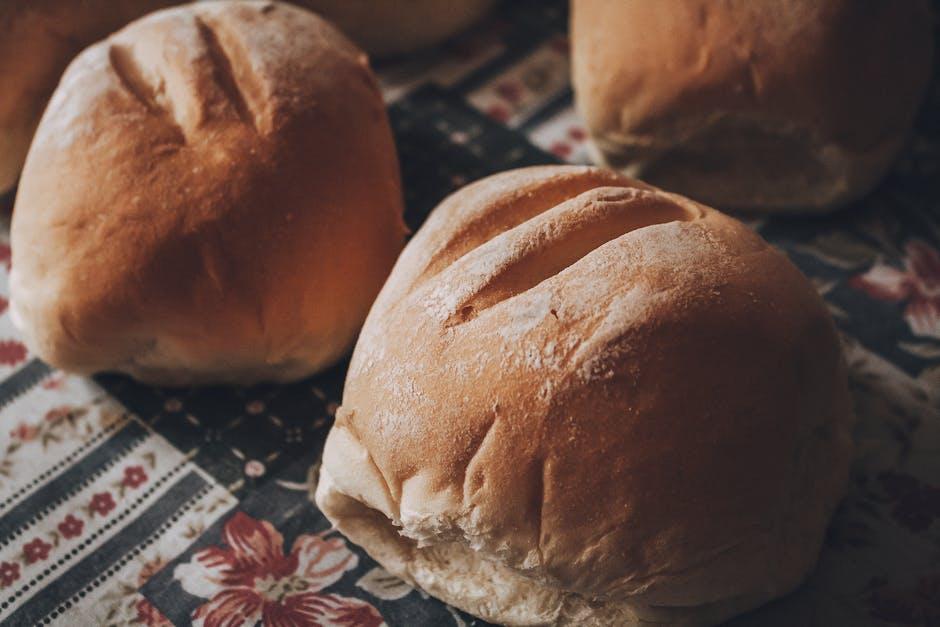In the bustling world of health and wellness, where new diets and fitness trends seem to emerge daily, the quest for effective weight loss strategies remains a constant. While countless guides promise quick fixes, the journey to a healthier weight often begins with a simple yet powerful step: understanding what not to eat. In this exploration of foods to avoid for faster weight loss, we delve into the less glamorous side of nutrition—the hidden culprits that can stealthily sabotage your efforts. From seemingly innocent snacks to beloved comfort foods, this article sheds light on the dietary choices that may be holding you back, offering insights into how a few mindful adjustments can pave the way to a more vibrant and healthier you. Whether you’re just starting your weight loss journey or seeking to refine your current approach, these insights will empower you to make informed decisions that align with your goals.
Hidden Sugars in Everyday Snacks
While trying to shed those extra pounds, it’s easy to overlook the sweet pitfalls lurking in seemingly innocent snacks. Many snacks, marketed as healthy or low-fat, often contain hidden sugars that can sabotage your weight loss journey. Here’s a look at some common culprits you might want to rethink:
- Granola Bars: Often seen as a quick, healthy option, these bars can be packed with added sugars. Opt for homemade versions or those with minimal ingredients.
- Flavored Yogurts: A favorite for breakfast or a snack, but many flavored varieties are loaded with sugar. Choose plain yogurt and add fresh fruits for natural sweetness.
- Trail Mix: While nuts and seeds are great, the dried fruits and chocolate chips added to many mixes can increase the sugar content significantly.
- Fruit Juices: Even those labeled as ‘100% fruit’ can be as sugar-laden as sodas. Whole fruits are always a better choice.
- Instant Oatmeal: Quick and easy, but flavored packets can be high in sugar. Consider plain oats with your own toppings.
By being mindful of these hidden sugars, you can make more informed choices that align with your weight loss goals, ensuring that your snacks support rather than hinder your progress.

Processed Carbs and Their Impact on Your Metabolism
Processed carbohydrates often lurk in foods that we might consider staples, but their impact on metabolism can be more significant than you might think. These refined carbs are quickly broken down into sugar, causing rapid spikes and drops in blood sugar levels. Such fluctuations can leave you feeling hungry sooner, leading to overeating and ultimately hindering your weight loss efforts. To maintain a more balanced metabolic rate, it’s essential to be mindful of the carbs you consume.
- White Bread: This ubiquitous pantry item lacks the fiber necessary to slow down digestion, leading to a quick conversion into glucose.
- Pastries and Sweets: While they may satisfy your sweet tooth, the high sugar content in these treats can disrupt your body’s ability to burn fat efficiently.
- Pasta: Especially the non-whole grain varieties, pasta can cause the same insulin spikes as white bread.
- Snack Foods: Chips and crackers, often made from refined flours, can be sneaky sources of processed carbs.
By being conscious of these common culprits and opting for whole, unprocessed alternatives, you can support a steadier metabolic rate and accelerate your weight loss journey. Swap out these refined options for whole grains, legumes, and vegetables to keep your metabolism humming along smoothly.

Unhealthy Fats to Cut from Your Diet
- Trans Fats: Often found in processed foods like baked goods, margarine, and fried snacks, trans fats are notorious for raising bad cholesterol levels and lowering good cholesterol. These artificial fats are created through a process called hydrogenation, which makes them particularly harmful. Cutting out foods containing trans fats can be a game-changer in your weight loss journey, as they not only contribute to weight gain but also increase the risk of heart disease.
- Saturated Fats: While not as harmful as trans fats, saturated fats still pose a risk to your health and weight loss goals. Commonly found in red meat, full-fat dairy products, and certain oils like coconut and palm oil, these fats can lead to increased cholesterol levels and weight gain when consumed in excess. Opting for leaner cuts of meat and low-fat dairy alternatives can help you reduce saturated fat intake.
Incorporating these changes into your diet can accelerate your weight loss efforts while promoting better overall health. Focus on consuming healthier fats like those found in avocados, nuts, and olive oil, which support heart health and keep you feeling full longer. By eliminating unhealthy fats, you’re setting yourself up for a more successful and sustainable weight loss journey.

Sodium Overload and Its Effects on Weight Loss
While sodium is essential for maintaining fluid balance and proper nerve function, excessive intake can be detrimental to your weight loss journey. Consuming too much sodium can lead to water retention, making you feel bloated and heavier than you actually are. To support your weight loss efforts, it’s crucial to be mindful of sodium intake and make informed food choices. Here are some foods you might want to consider avoiding:
- Processed Meats: Bacon, sausages, and deli meats are not only high in sodium but also loaded with preservatives that can derail your weight loss goals.
- Packaged Snacks: Chips, crackers, and other packaged snacks often contain hidden sodium to enhance flavor and prolong shelf life.
- Canned Soups: While convenient, canned soups are notorious for their high sodium content, which can quickly add up and impact your daily intake.
- Condiments: Soy sauce, ketchup, and salad dressings can be surprising sodium traps. Opt for low-sodium versions or make your own to control sodium levels.
- Frozen Dinners: These meals might save time, but they are often laden with sodium to compensate for flavor lost during freezing.
By reducing sodium intake, you can help prevent unwanted water retention, allowing your weight loss efforts to shine through more effectively. Embrace fresh, whole foods and experiment with herbs and spices to enhance flavor without the sodium hit.
To Conclude
As we navigate the ever-evolving landscape of nutrition and wellness, understanding the impact of certain foods on our weight loss journey becomes a vital compass. By identifying and steering clear of these dietary pitfalls, we empower ourselves to make choices that align with our health goals. Remember, the path to faster weight loss is not paved with deprivation but with mindful decisions that honor our body’s needs. Let this guide be a stepping stone, inspiring you to cultivate a balanced relationship with food—one that nurtures both body and spirit. Here’s to a healthier, more vibrant you, fueled by knowledge and intention.


































